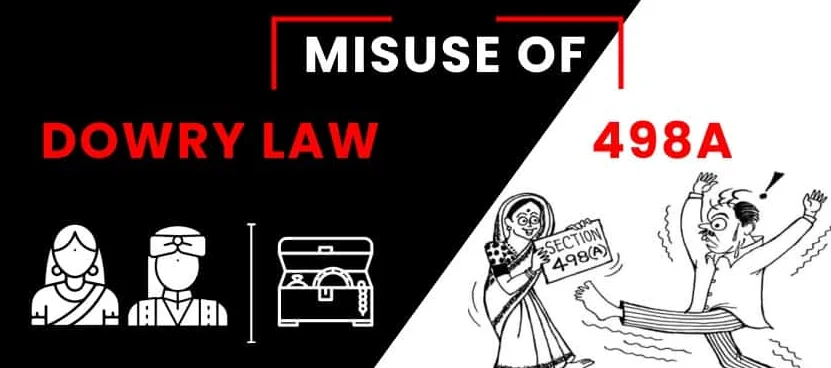Practice Areas
Criminal cases involve legal actions taken by the government against individuals or entities accused of committing a crime. These cases typically follow a set legal process and may result in penalties such as fines, probation, imprisonment, or other forms of punishment. Here is an overview of the typical stages of a criminal case:
Investigation:
- The criminal justice process often begins with an investigation by law enforcement. This may involve gathering evidence, interviewing witnesses, and collecting information to determine whether a crime has occurred and who may be responsible.
Arrest:
- If law enforcement believes they have sufficient evidence, they may make an arrest. The arrested individual is then taken into custody.
Booking:
- After arrest, the individual is typically taken to a police station for booking. This involves recording personal information, taking fingerprints and photographs, and documenting details about the alleged crime.
Initial Appearance:
- The arrested person is brought before a court for an initial appearance. During this hearing, the charges are read, and the individual is informed of their rights. The court may also decide on bail during this stage.
Bail Hearing:
- If bail is set, the accused may have a bail hearing where the court determines whether they can be released from custody pending trial and, if so, under what conditions.
Arraignment:
- The arraignment is a formal court hearing where the accused is informed of the charges against them and asked to enter a plea (guilty, not guilty, or no contest).
Discovery:
- Both the prosecution and defense engage in the discovery process, exchanging information and evidence relevant to the case.
Pretrial Motions:
- Before the trial, either the prosecution or defense may file motions addressing legal issues such as the admissibility of evidence or the dismissal of charges.
Plea Bargaining:
- Prosecutors and defense attorneys may engage in negotiations to reach a plea agreement, where the accused agrees to plead guilty to a lesser charge in exchange for a more lenient sentence.
Trial:
- If no plea agreement is reached, the case proceeds to trial. The prosecution and defense present their cases, witnesses testify, and evidence is presented. A judge or jury then determines the guilt or innocence of the accused.
Verdict:
- If the case goes to trial, the judge or jury delivers a verdict. If the accused is found guilty, a separate sentencing hearing may be scheduled.
Sentencing:
- If convicted, the accused is sentenced. Sentences can include fines, probation, community service, imprisonment, or a combination of these penalties.
Appeals:
- The accused may have the right to appeal the verdict or sentence if legal errors occurred during the trial.

In India, domestic violence is addressed under the Indian Penal Code (IPC) through several sections that provide legal remedies for victims of domestic violence. These provisions are primarily aimed at protecting women from physical, emotional, and economic abuse within their homes. The main section that deals with domestic violence in the IPC is Section 498-A, but other sections may also be relevant in certain situations. Here is an overview of these sections:
Section 498-A: This section deals with cruelty by a husband or his relatives towards a married woman. It covers both physical and mental cruelty. If a woman is subjected to cruelty by her husband or in-laws, she can file a complaint under this section. The punishment for the guilty can include imprisonment and fines.
Section 304-B: This section deals with dowry-related deaths. If a married woman dies under suspicious circumstances within seven years of her marriage, and it is found that she was subjected to cruelty or harassment for dowry, this section is invoked. The punishment can be imprisonment for a term which may extend to life imprisonment.
Section 494 and 495: These sections deal with bigamy and marrying again during the lifetime of a spouse. If a person marries another person while their spouse is alive, it can be considered a criminal offense.
Section 375 and 376: These sections deal with sexual offenses and rape. If a husband commits sexual acts without the wife’s consent, it can be considered rape. Consent is crucial, and marital rape is recognized as a form of sexual violence.
It’s important to note that the legal framework surrounding domestic violence in India is not limited to the IPC. The Protection of Women from Domestic Violence Act, 2005 is another significant piece of legislation that provides comprehensive protection to women from domestic violence, regardless of their marital status. This Act allows victims to seek protection orders, residence orders, and monetary relief, among other remedies.
Moreover, several guidelines and judgments from the Supreme Court of India have emphasized the importance of safeguarding the rights and dignity of women in domestic violence cases.
If you or someone you know is a victim of domestic violence, it is crucial to seek legal help and support from local authorities or organizations specializing in domestic violence cases. The laws and regulations related to domestic violence may change, so it’s essential to consult with a legal expert for the most current information and guidance.

Divorce in India is primarily governed by personal laws based on an individual’s religion. The Indian Penal Code (IPC) does not directly address divorce proceedings; rather, it focuses on criminal offenses. However, there are several provisions under different personal laws that deal with divorce procedures. Here’s a brief overview of how divorce is handled in some of the major personal laws in India:
Hindu Marriage Act, 1955: This act provides provisions for divorce among Hindus. There are various grounds for divorce, including adultery, cruelty, desertion, conversion to another religion, unsoundness of mind, or venereal disease. The most common grounds for divorce under this act are cruelty and adultery.
Muslim Personal Law: In Islamic law, divorce is granted through methods like Talaq (divorce initiated by the husband), Khula (divorce initiated by the wife), or Mubaraat (mutual consent divorce). The procedure and grounds for divorce may vary among different sects and schools of thought within Islam.
Christian Marriage Act, 1872: This act governs Christian marriages in India. Grounds for divorce include adultery, desertion, cruelty, and conversion to another religion. The procedures for divorce are outlined in this act.
Parsi Marriage and Divorce Act, 1936: This act regulates marriage and divorce among Parsis. Grounds for divorce include adultery, cruelty, and desertion. Procedures for divorce are defined in the act.
Special Marriage Act, 1954: This act provides a framework for civil marriages in India. It allows individuals of different religions or those who do not wish to follow their personal laws to marry and divorce under a common set of rules. Grounds for divorce include cruelty, adultery, and desertion.
It’s important to note that divorce proceedings can be complex, and the specific rules and procedures may vary based on the personal laws that apply to the individuals involved. In addition to the IPC, the legal framework for divorce also includes provisions in the Family Courts Act, 1984, and various judgments by Indian courts.
If you are considering divorce, it is advisable to consult with a qualified family lawyer who can guide you through the process and provide advice based on your personal circumstances and the applicable personal laws. Legal requirements and procedures may change over time, so it’s essential to seek current legal counsel.

Dowry-related issues in India are primarily governed by several sections of the Indian Penal Code (IPC), as well as the Dowry Prohibition Act, 1961. These laws aim to combat the practice of dowry, which involves the giving or receiving of property or valuable gifts as part of a marriage arrangement. Dowry-related offenses are criminalized to protect individuals, particularly women, from the harmful consequences of dowry demands and harassment. Here are some relevant sections of the IPC and the Dowry Prohibition Act:
Section 498-A of the IPC: This section deals with cruelty towards a married woman by her husband or his relatives. It includes both physical and mental cruelty. If a woman is subjected to cruelty due to dowry demands or harassment, a complaint can be filed under this section. The punishment for those found guilty can include imprisonment and fines.
Section 304-B of the IPC: This section deals with dowry-related deaths. If a married woman dies under suspicious circumstances within seven years of her marriage, and it is found that she was subjected to cruelty or harassment for dowry, this section is invoked. The punishment can include imprisonment for a term which may extend to life imprisonment.

Child custody and maintenance issues in India are primarily governed by family and personal laws, rather than the Indian Penal Code (IPC). The IPC deals with criminal offenses, whereas family law matters, including child custody and maintenance, are addressed under specific family law statutes and personal laws. The primary legal frameworks for child custody and maintenance in India are:
Guardians and Wards Act, 1890: This act deals with the appointment of guardians for the custody and welfare of minors. It lays down the legal procedures for the appointment of guardians and the matters related to the welfare of children.
Hindu Minority and Guardianship Act, 1956: This act provides guidelines for the appointment of guardians for Hindu minors, including provisions for the custody of children in Hindu families.
Hindu Marriage Act, 1955: While this act primarily deals with marriage and divorce, it also includes provisions related to the custody of children and their maintenance after divorce.
Muslim Personal Law: In Islamic law, child custody and maintenance are governed by the personal laws applicable to Muslims in India. The custody of children can vary depending on the age and gender of the child, with a preference for mothers in the case of younger children.
Christian Marriage Act, 1872: Similar to the Hindu Marriage Act, this act includes provisions for child custody and maintenance following divorce among Christians.
Special Marriage Act, 1954: This act provides for civil marriages and includes provisions for child custody and maintenance after divorce for couples married under its provisions.
Child custody and maintenance matters are typically decided in family courts, and the best interests of the child are the primary consideration. The court may determine custody arrangements and set maintenance amounts based on the income and financial resources of the parents.
If you are involved in a child custody or maintenance dispute, it is essential to consult with a family lawyer who specializes in family law cases to navigate the legal processes and ensure the best interests of the child are protected. These matters are complex, and the specific legal requirements can vary based on personal laws and the facts of each case.

Bail Lawyer in Delhi / india
“No person shall be deprived of his life or personal liberty except according to the procedure established by Law”. The Criminal Procedure Code, 1973 talks in details about the bail process and how it is obtained. However, it does not define bail. ‘Bail’ connotes the process of procuring the release of an accused charged with certain offence by ensuring his future attendance in the Court for trial and compelling him to remain within the jurisdiction of the Court.
Kinds of Bail:
Generally there are four categories of bail and they are:
- bail in bailable offences (Section 436)
- bail in non bailable offences (Sections 437 & 439),
- which causes or is intended to cause disaffection against India;
- anticipatory bail (Section 438)
- Default Bail (Section 167(2))
Section 436 : Section 436 of the Code of Criminal Procedure deals with provisions of bail in bailable offences. Under this section, bail is the right of person, whohas been accused for commission of offence, which is bailable in nature. This provision casts a mandatory duty on police official as well as on the Court torelease the accused on bail if the offence alleged against such person is bailable in nature.
Section 437: When a person is accused of, or suspected of, the commission of any non-bailable offence, is arrested or detained without warrant or appears or is brought before a Court other than the High Court or Court of Session, he may be released on bail, but such person shall not be so released, if there appear reasonable grounds for believing that he has been guilty of an offence punishable with death or imprisonment for life; if such offence is a cognizable offence and he had been previously convicted of an offence punishable with death, imprisonment for life or imprisonment for seven years or more, or he had been previously convicted on two or more occasions of a non-bailable and cognizable offence.
But the person may be released if he is under the age of sixteen years or is a woman or is sick or infirm. He may be released if it is satisfied that it is just and proper so to do for any other special reason.
The factors to be borne in mind while considering an application for bail are:
- whether there is any prima facie or reasonable ground to believe that the accused had committed the offence;
- nature and gravity of the accusation;
- severity of the punishment in the event of conviction;
- danger of the accused absconding or fleeing, if released on bail;
- character, behaviour, means, position and standing of the accused;
- likelihood of the offence being repeated;
- Reasonable apprehension of the witnesses being influenced; and
- danger, of course, of justice being thwarted by grant of bail.
[Refrence: State of U.P. through CBI v. Amarmani Tripathi, 2005 (8) SCC 21; Prahlad Singh Bhati v. NCT, Delhi & Anr. 2001 (4) SCC 280; Ram Govind Upadhyay v. Sudarshan Singh & Ors., 2002 (3) SCC 598.]
ANTICIPATORY BAIL:
Section 438 of Cr.P.C. deals with anticipatory bail. When any person has an apprehension or reason to believe that he may be arrested of an accusation of having committed a non-bailable offence then he may apply to High Court or Court of Sessions for direction that in the event of arrest he shall be released on bail. The said powers are exclusively vested with the Court of Sessions and High Courts. For considering the application for anticipatory bail the prerequisite condition is that:
- the offence must be non-bailable and cognizable.
- there must be a sufficient reason to believe that the applicant may be arrested in said accusation.
Scope and ambit of Section 438 Cr.P.C (Anticipatory Bail).
It is apparent from the Statement of Objects and Reasons for introducing section 438 in the Code of Criminal Procedure, 1973 that it was felt imperative to evolve a device by which an accused is not compelled to face ignominy and disgrace at the instance of influential people who try to implicate their rivals in false cases.
It is clear from the Statement of Objects and Reasons that the purpose of incorporating Section 438 in the Cr.P.C. was to recognize the importance of personal liberty and freedom in a free and democratic country. When we carefully analyse this section, the wisdom of the legislature becomes quite evident and clear that the legislature was keen to ensure respect for the personal liberty and also pressed in service the age-old principle that an individual is presumed to be innocent till he is found guilty by the court.
The Constitution Bench of The Hon’ble Supreme Court in Gurbaksh Singh Sibbia and Others v. State of Punjab [(1980) 2 SCC 565] had an occasion to comprehensively deal with the scope and ambit of the concept of anticipatory bail. This Court in the Sibbia’s case laid down the following principles with regard to anticipatory bail:
- Section 438(1) is to be interpreted in light of Article 21 of the Constitution of India.
- Filing of FIR is not a condition precedent to exercise of power under section 438.
- Order under section 438 would not affect the right of police to conduct investigation.
- Conditions mentioned in section 437 cannot be read into section 438.
- Although the power to release on anticipatory bail can be described as of an “extraordinary” character this would “not justify the conclusion that the power must be exercised in exceptional cases only.” Powers are discretionary to be exercised in light of the circumstances of each case.
- Initial order can be passed without notice to the Public Prosecutor. Thereafter, notice must be issued forthwith and question ought to be re- examined after hearing. Such ad interim order must conform to requirements of the section and suitable conditions should be imposed on the applicant.
Later, in the matter of Siddharam Satlingappa Mhetre vs State Of Maharashtra And Ors the following factors and parameters has emerged into larger consideration while dealing with the anticipatory bail:
- The nature and gravity of the accusation and the exact role of the accused must be properly comprehended before arrest is made;
- The antecedents of the applicant including the fact as to whether the accused has previously undergone imprisonment on conviction by a Court in respect of any cognizable offence;
- the possibility of the applicant to flee from justice;
- The possibility of the accused’s likelihood to repeat similar or the other offences.
- Where the accusations have been made only with the object of injuring or humiliating the applicant by arresting him or her.
- Impact of grant of anticipatory bail particularly in cases of large magnitude affecting a very large number of people.
- The courts must evaluate the entire available material against the accused very carefully. The court must also clearly comprehend the exact role of the accused in the case. The cases in which accused is implicated with the help of sections 34 and 149 of the Indian Penal Code, the court should consider with even greater care and caution because over implication in the cases is a matter of common knowledge and concern;
- While considering the prayer for grant of anticipatory bail, a balance has to be struck between two factors namely, no prejudice should be caused to the free, fair and full investigation and there should be prevention of harassment, humiliation and unjustified detention of the accused;
- The court to consider reasonable apprehension of tampering of the witness or apprehension of threat to the complainant;
- Frivolity in prosecution should always be considered and it is only the element of genuineness that shall have to be considered in the matter of grant of bail and in the event of there being some doubt as to the genuineness of the prosecution, in the normal course of events, the accused is entitled to an order of bail.

ANTICIPATORY BAIL:
Section 438 of Cr.P.C. deals with anticipatory bail. When any person has an apprehension or reason to believe that he may be arrested of an accusation of having committed a non-bailable offence then he may apply to High Court or Court of Sessions for direction that in the event of arrest he shall be released on bail. The said powers are exclusively vested with the Court of Sessions and High Courts. For considering the application for anticipatory bail the prerequisite condition is that:
- the offence must be non-bailable and cognizable.
- there must be a sufficient reason to believe that the applicant may be arrested in said accusation.
Scope and ambit of Section 438 Cr.P.C (Anticipatory Bail).
It is apparent from the Statement of Objects and Reasons for introducing section 438 in the Code of Criminal Procedure, 1973 that it was felt imperative to evolve a device by which an accused is not compelled to face ignominy and disgrace at the instance of influential people who try to implicate their rivals in false cases.
It is clear from the Statement of Objects and Reasons that the purpose of incorporating Section 438 in the Cr.P.C. was to recognize the importance of personal liberty and freedom in a free and democratic country. When we carefully analyse this section, the wisdom of the legislature becomes quite evident and clear that the legislature was keen to ensure respect for the personal liberty and also pressed in service the age-old principle that an individual is presumed to be innocent till he is found guilty by the court.
The Constitution Bench of The Hon’ble Supreme Court in Gurbaksh Singh Sibbia and Others v. State of Punjab [(1980) 2 SCC 565] had an occasion to comprehensively deal with the scope and ambit of the concept of anticipatory bail. This Court in the Sibbia’s case laid down the following principles with regard to anticipatory bail:
- Section 438(1) is to be interpreted in light of Article 21 of the Constitution of India.
- Filing of FIR is not a condition precedent to exercise of power under section 438.
- Order under section 438 would not affect the right of police to conduct investigation.
- Conditions mentioned in section 437 cannot be read into section 438.
- Although the power to release on anticipatory bail can be described as of an “extraordinary” character this would “not justify the conclusion that the power must be exercised in exceptional cases only.” Powers are discretionary to be exercised in light of the circumstances of each case.
- Initial order can be passed without notice to the Public Prosecutor. Thereafter, notice must be issued forthwith and question ought to be re- examined after hearing. Such ad interim order must conform to requirements of the section and suitable conditions should be imposed on the applicant.
Later, in the matter of Siddharam Satlingappa Mhetre vs State Of Maharashtra And Ors the following factors and parameters has emerged into larger consideration while dealing with the anticipatory bail:
- The nature and gravity of the accusation and the exact role of the accused must be properly comprehended before arrest is made;
- The antecedents of the applicant including the fact as to whether the accused has previously undergone imprisonment on conviction by a Court in respect of any cognizable offence;
- the possibility of the applicant to flee from justice;
- The possibility of the accused’s likelihood to repeat similar or the other offences.
- Where the accusations have been made only with the object of injuring or humiliating the applicant by arresting him or her.
- Impact of grant of anticipatory bail particularly in cases of large magnitude affecting a very large number of people.
- The courts must evaluate the entire available material against the accused very carefully. The court must also clearly comprehend the exact role of the accused in the case. The cases in which accused is implicated with the help of sections 34 and 149 of the Indian Penal Code, the court should consider with even greater care and caution because over implication in the cases is a matter of common knowledge and concern;
- While considering the prayer for grant of anticipatory bail, a balance has to be struck between two factors namely, no prejudice should be caused to the free, fair and full investigation and there should be prevention of harassment, humiliation and unjustified detention of the accused;
- The court to consider reasonable apprehension of tampering of the witness or apprehension of threat to the complainant;
- Frivolity in prosecution should always be considered and it is only the element of genuineness that shall have to be considered in the matter of grant of bail and in the event of there being some doubt as to the genuineness of the prosecution, in the normal course of events, the accused is entitled to an order of bail.

The Protection of Children from Sexual Offences (POCSO) Act, 2012 is a separate and specific law in India aimed at protecting children from sexual abuse and exploitation. It is not a part of the Indian Penal Code (IPC). The POCSO Act provides legal provisions and procedures for dealing with sexual offenses against children under the age of 18. Here are some key points related to the POCSO Act:
Scope: The POCSO Act is designed to address a wide range of sexual offenses against children, including but not limited to child molestation, child pornography, and child sexual abuse.
Special Courts: The Act establishes special courts to conduct speedy trials of cases filed under it, with the goal of ensuring that children who are victims of sexual offenses are not subjected to prolonged legal proceedings.
Age of Consent: The POCSO Act presumes that a child under the age of 18 cannot give informed consent for sexual activity. Therefore, any sexual activity with a child under this age is considered an offense.
Offenses and Penalties: The Act defines various offenses, such as sexual assault, non-penetrative sexual assault, using a child for pornographic purposes, and more. Penalties for these offenses range from imprisonment to hefty fines.
Mandatory Reporting: The Act places an obligation on individuals and professionals who come into contact with children, such as doctors, teachers, and social workers, to report cases of child sexual abuse.
Child-Friendly Procedures: The Act encourages child-friendly legal procedures, ensuring that children are not subjected to aggressive or intimidating questioning during trials.
Confidentiality and Privacy: The POCSO Act emphasizes the importance of maintaining the privacy and confidentiality of the child throughout the legal process.
It’s important to understand that the POCSO Act provides strict legal provisions to address and prevent child sexual abuse. If you are aware of any cases of child sexual abuse or exploitation, it is essential to report it to the local authorities, who can investigate and take appropriate legal action.
The POCSO Act is a critical piece of legislation in India for the protection of children from sexual offenses, and it is separate from the IPC, which deals with a wide range of criminal offenses in the country.

Rape is a grave criminal offense under the Indian Penal Code (IPC) that is taken very seriously by the Indian legal system. It is covered under several sections of the IPC, with different sections addressing various aspects of rape. The primary section dealing with rape is Section 375 of the IPC. Here are the key points related to rape as per the IPC:
Definition of Rape (Section 375): This section defines rape as sexual intercourse with a woman without her consent or with her consent obtained by force, fraud, deception, or coercion. It also covers cases involving a woman who is unable to give consent due to intoxication, unsoundness of mind, or a lack of capacity to understand the nature and consequences of the act.
Punishment for Rape: The punishment for rape varies depending on the circumstances, such as whether the victim is a minor, the relationship between the accused and the victim, and the use of violence or intoxication. In some cases, the punishment can include life imprisonment or even the death penalty.
Marital Rape: Marital rape is not explicitly addressed under Indian law. However, consent within a marriage is a complex issue, and the legal framework is evolving. Some judgments have recognized that non-consensual sexual acts within a marriage can be considered rape.
Age of Consent: The age of consent in India is 18, which means sexual intercourse with a person under 18, even if consensual, can be considered statutory rape.
Protection of Children: The Protection of Children from Sexual Offences (POCSO) Act, 2012 is a separate law that deals specifically with sexual offenses against children, including rape, and provides additional legal protections for minors.
Legal Procedures: Rape cases are generally tried in fast-track courts to ensure swift justice for the victims. Special legal provisions are in place to protect the privacy and dignity of rape victims.
It’s important to note that rape is a serious crime, and individuals found guilty of rape can face severe legal consequences. If someone is a victim of rape or knows of such a case, it is crucial to report it to the police so that the legal system can investigate and take appropriate action. Rape survivors are also entitled to support and counseling services to help them cope with the trauma and navigate the legal process.

Kidnapping is a criminal offense in India, and it is covered under various sections of the Indian Penal Code (IPC). The IPC contains provisions that define and address kidnapping, and these provisions are primarily found in Sections 359 to 374 of the IPC. Here are key points related to kidnapping under the IPC:
Kidnapping (Section 359): Section 359 of the IPC defines kidnapping as the abduction or taking away of a person against their will. Kidnapping can be of two types: kidnapping from India and kidnapping from lawful guardianship.
Kidnapping from India (Sections 360 and 361): Section 360 of the IPC deals with kidnapping from India, which involves taking a person from one place within India to another place within India. Section 361 relates to kidnapping from India with the intent to subject the person to illegal confinement.
Kidnapping from Lawful Guardianship (Section 362): Section 362 of the IPC deals with kidnapping from lawful guardianship, which means taking a minor or a person of unsound mind away from the lawful guardian without the guardian’s consent.
Punishment for Kidnapping (Section 363 to 368): The IPC prescribes different levels of punishment for kidnapping, depending on the specific circumstances and intent. Punishments for kidnapping can range from imprisonment to life imprisonment, or even the death penalty in extreme cases where the kidnapped person is harmed or killed.
Aggravated Kidnapping (Sections 364 to 367): The IPC includes provisions for aggravated forms of kidnapping, such as kidnapping with the intent to murder, kidnap for ransom, or kidnap with the intent to cause grievous harm. These forms of kidnapping carry more severe penalties.
Abduction (Section 362A): Section 362A of the IPC specifically addresses abduction for ransom, or for the sake of marriage, and prescribes severe punishment for these offenses.
It is important to note that kidnapping is a serious crime in India, and individuals found guilty of kidnapping can face significant legal consequences, including imprisonment. The specific punishment depends on the circumstances of the case, the age and condition of the person kidnapped, and the intent of the accused. Kidnapping cases are thoroughly investigated by the police, and the accused is entitled to a fair trial.
If you or someone you know has been a victim of kidnapping or is facing legal issues related to kidnapping, it is advisable to consult with a qualified legal professional who can provide guidance and assistance in navigating the legal process.

Definition: Section 138 of the Negotiable Instruments Act defines the offense of dishonor of a cheque for insufficiency of funds or if it exceeds the amount arranged to be paid by the drawer’s account.
Conditions for Filing a Complaint: To file a complaint for cheque bounce under Section 138, the following conditions must be met:
The cheque must have been presented to the bank within six months from the date mentioned on it or within its validity period.
The payee or holder of the cheque must serve a notice of demand for payment within 30 days of the cheque being dishonored.
The drawer of the dishonored cheque fails to make payment within 15 days of receiving the notice.
Penalties: If the drawer of the dishonored cheque is found guilty, they may face imprisonment for a term that may extend to two years and/or a fine that may extend to twice the amount of the cheque or with both.
Compounding: In many cases, the parties involved can reach a compromise and settle the matter by compounding the offense, subject to the court’s permission.
Jurisdiction: Cheque bounce cases are usually tried in the magistrate courts, and the complainant must file the case in the place where the bank is situated or where the cheque was presented.
Multiple Cheques: In the case of multiple dishonored cheques, the complainant can file separate complaints for each dishonored cheque.
Legal Recourse: If you are a payee or holder of a dishonored cheque, you can file a complaint under Section 138 of the Negotiable Instruments Act. It’s important to retain the services of a qualified lawyer for proper legal representation and guidance in such cases.
Cheque bounce cases can be complex, and it’s crucial to follow the legal procedures and requirements precisely to ensure a successful prosecution. Additionally, legal requirements and procedures may change, so it is advisable to seek current legal counsel when dealing with such cases.

The Narcotic Drugs and Psychotropic Substances Act, 1985 (NDPS Act), is a separate and specific law in India that deals with offenses related to narcotic drugs and psychotropic substances. It is not a part of the Indian Penal Code (IPC). The NDPS Act provides a legal framework to control and regulate operations relating to narcotic drugs and psychotropic substances, as well as to combat drug abuse and trafficking. Here are key points related to the NDPS Act:
Offenses and Penalties: The NDPS Act prescribes various offenses and penalties for activities related to narcotic drugs and psychotropic substances. These offenses include the production, manufacture, possession, sale, purchase, transport, warehousing, use, and consumption of these substances. Penalties for violations can range from imprisonment to hefty fines, and in some cases, even the death penalty.
Regulatory Authorities: The NDPS Act establishes authorities, such as the Narcotics Control Bureau (NCB) and the Central Bureau of Narcotics (CBN), to monitor and regulate activities related to narcotic drugs and psychotropic substances.
Preventive Detention: The Act allows for preventive detention to prevent drug trafficking and drug-related crimes. The government can detain individuals involved in such activities without trial for a specified period.
Forfeiture of Property: The NDPS Act allows for the forfeiture of property used for drug-related offenses. It provides for the confiscation of property used in the commission of such offenses.
Treatment and Rehabilitation: The Act recognizes the need for treatment, rehabilitation, and social reintegration of addicts. It provides for the establishment of centers for the treatment and rehabilitation of drug-dependent individuals.
International Agreements: India is a signatory to various international conventions and agreements related to narcotics control. The NDPS Act is aligned with these international commitments.
It is important to understand that the NDPS Act is a comprehensive legal framework that aims to combat the drug trade, prevent drug abuse, and provide legal mechanisms for addressing drug-related offenses. Cases related to violations of the NDPS Act are heard in special courts, and individuals found guilty of offenses under this law can face severe legal consequences, including imprisonment.
If you have questions or concerns related to the NDPS Act or are facing legal issues related to narcotic drugs and psychotropic substances, it is advisable to consult with a qualified legal professional who can provide guidance and assistance in navigating the legal process.

The Indian Arbitration and Conciliation Act, 1996 the governing arbitration statute in India. It is based on the Model Law on International Commercial Arbitration adopted by the United Nations Commission on International Trade Law (UNCITRAL) in 1985. Previous statutory provisions on arbitration were contained in three different enactments, namely, the Arbitration Act, 1940, the Arbitration (Protocol and Convention) Act, 1937 and the Foreign Awards (Recognition and Enforcement) Act, 1961. The Arbitration and Conciliation Act, 1996 has repealed the Arbitration Act, 1940 and also the Acts of 1937 and 1961.
The laws and regulations governing arbitration and conciliation in India are primarily contained in the Arbitration and Conciliation Act, 1996. This legislation provides the legal framework for conducting arbitrations and conciliations in the country. Arbitration and conciliation are used to resolve civil disputes, including those related to commercial contracts, construction agreements, and various other civil matters.
The person appointed for the process of arbitration is called arbitrator. Appointment of Arbitrator is done under provision of section 11 of Arbitration and Conciliation act 1996. While, the person appointed for the process of Conciliation is called conciliator. Appointment of conciliator is done under the provisions of section 64 of Arbitration and Conciliation act 1996.
Both arbitrator and conciliator are guided by the principle of objectivity, fairness, and justice. They conduct the proceedings in such a manner which are considered fair and appropriate. They help to settle the dispute between the parties.
ADR provides a viable option for those who prefer to stay out of court and has many potential advantages for most litigants, including:
Reduced cost
Efficient resolution
Less emotional stress
Flexibility with rules and procedures
Control over the results
Our firm provides various services under the law of arbitrations as follows:
Application before the High Court for appointment of arbitrator;
Petition before the court seeking Interim relief before or at the stage of arbitration proceedings;
Petition under section 34 of Arbitration Act, 1999 seeking set aside of the award;
Execution petition seeking realisation of the arbitration award before civil court.
Appear before arbitrators across the country;
Arbitration in Commercial disputes
Domestic and International Arbitration
Enforcement of Awards in India and outside India
Pre-Litigation Mediation
Litigation is a suit which is still pending in the court process. Whereas, Pre-Litigation takes place before the court process begins. It is voluntarily taken up by both the parties. It is a prior attempt to resolve the dispute before the case goes through the court process. It follows an assisted negotiation process.
Pre-Litigation mediation saves time and money of the parties as well as it is a speedy process; and they also get to know about the temperament, deeds and demands of each of the parties. The procedure takes place with the help of a mediator, he promotes communication but the procedure holds great confidentiality in its own. The mediator works with both the parties along with their counsels for dispute resolution and does not impose the decision upon the parties.
All types of cases can go through the beneficial means of Pre-Litigation Mediation like matrimonial disputes, business disputes, insurance disputes, civil disputes etc. Any dispute settlement made in Pre-Litigation Mediation is written, signed by both the parties and filled in the court in the form of a proper settlement agreement and such agreement is binding upon both the parties.

